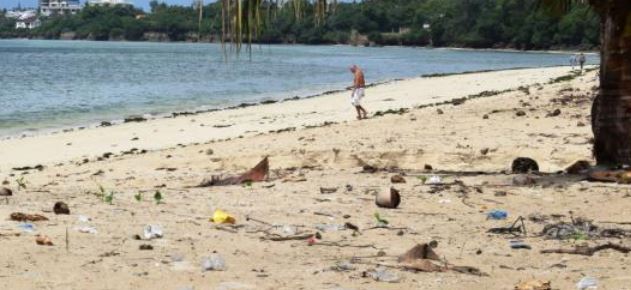×
The Standard e-Paper
Smart Minds Choose Us

Tourist gets fresh air as he walks along the Jomo Kenyatta Public beach [PHOTO: GIDEON MAUNDU].
The hospitality industry that faced a sickening blow in 2020 with some prime hotels winding up operations or shipping out, is slowly showing recovery signs.